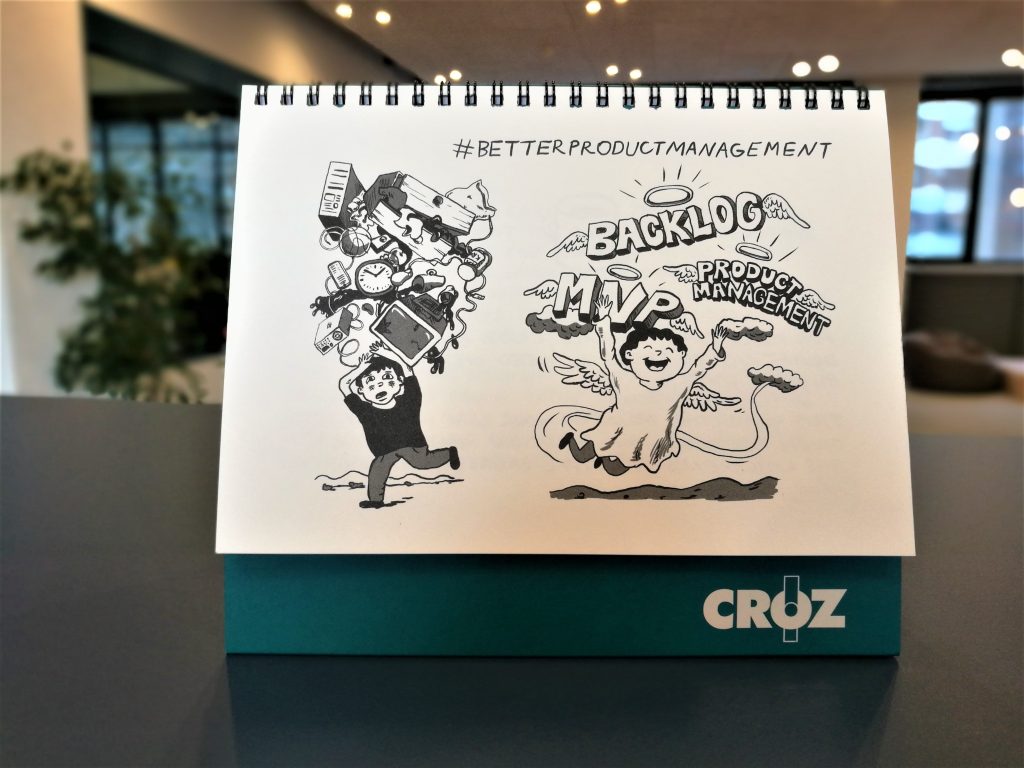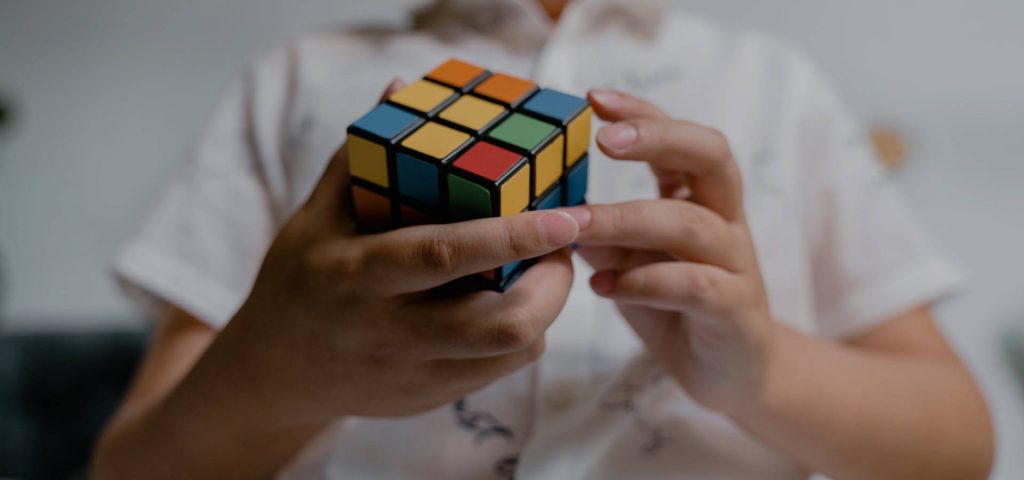Within the recently held event KEY IMPACTS OF PRODUCT MANAGEMENT, where the goal was to demonstrate why all organizations (not just product-oriented ones) need to incorporate product management principles, our Luka Gauta did an introduction lecture. You can find his 20 min talk here starting at 1:35. But, for our English-speaking friends, we prepared a brief summary below. Enjoy!
From his first steps, my 6.5-year-old son did not show much interest in sports but behaved more like a researcher or, we could say an engineer profile. But at one point, the mother of all evil, PlayStation, moved into our household, and I couldn’t resist his call for a sidekick. We started playing FIFA – a football video game. That’s the moment he fell in love with BORUSSIA DORTMUND. It is a dear club to me, they really have that romantic vibe, but to be clear I know as much about them as I know about Portuguese 3rd league clubs. His “researcher” spirit kicked in, and we ended up sending drawings and corresponding with the BORRUSIA DORTUMUND Kids Club. Probably all men here now think “Awesome, you can even watch the Champions League together!” and they are mostly right. Except for when he wants to watch BORUSSIA – GENK while the spectacle like REAL MADRID – INTER is in a parallel session.
One weekend he was in his drawing mode and drew a robot – a black and yellow one, of course. Then he asked me if we could make such a robot in our company.
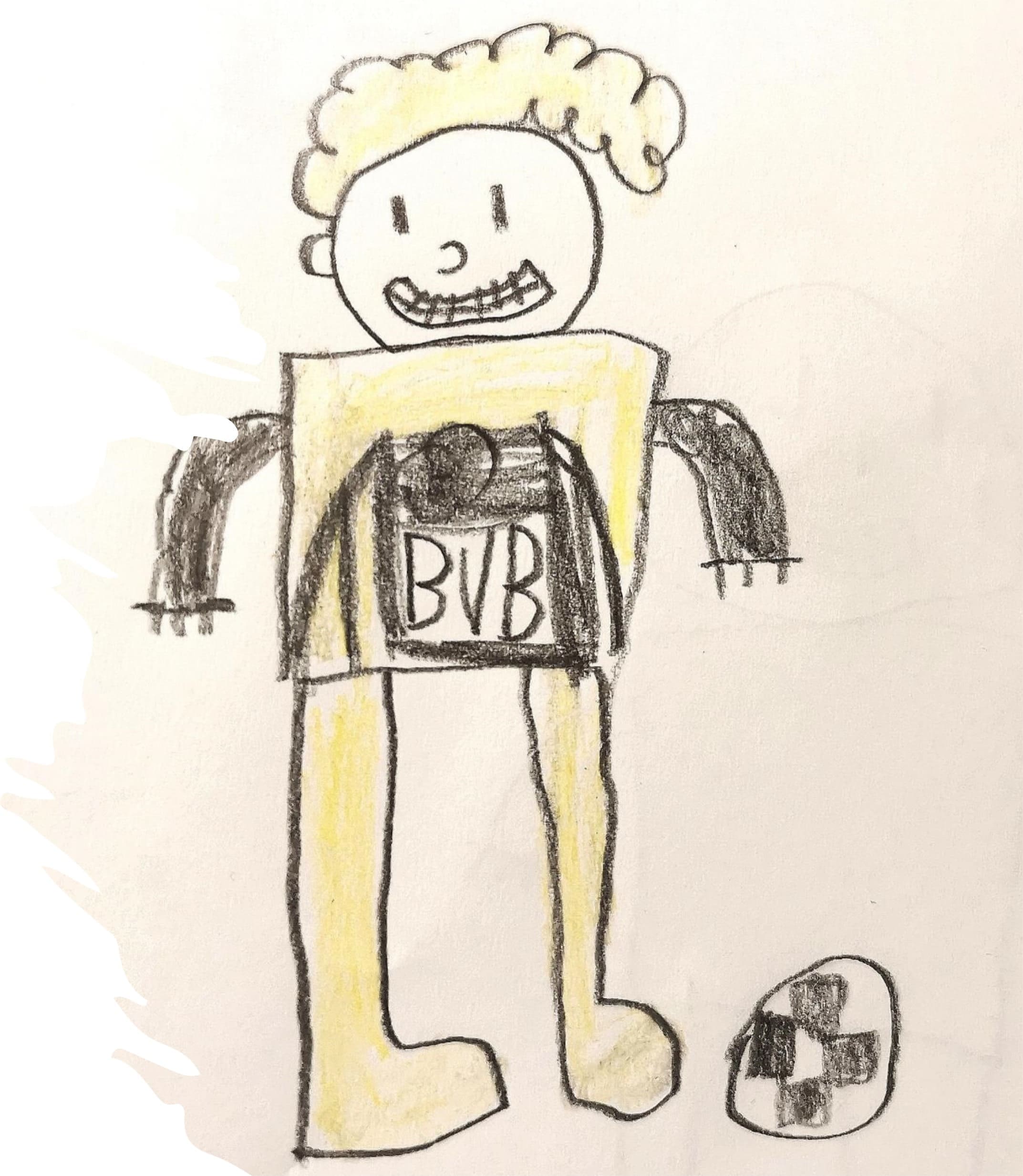
Well of course! What kind of company would we be if we couldn’t make robots! But I asked him to draw and write more details, just to get a better feeling. And he came back with this drawing.
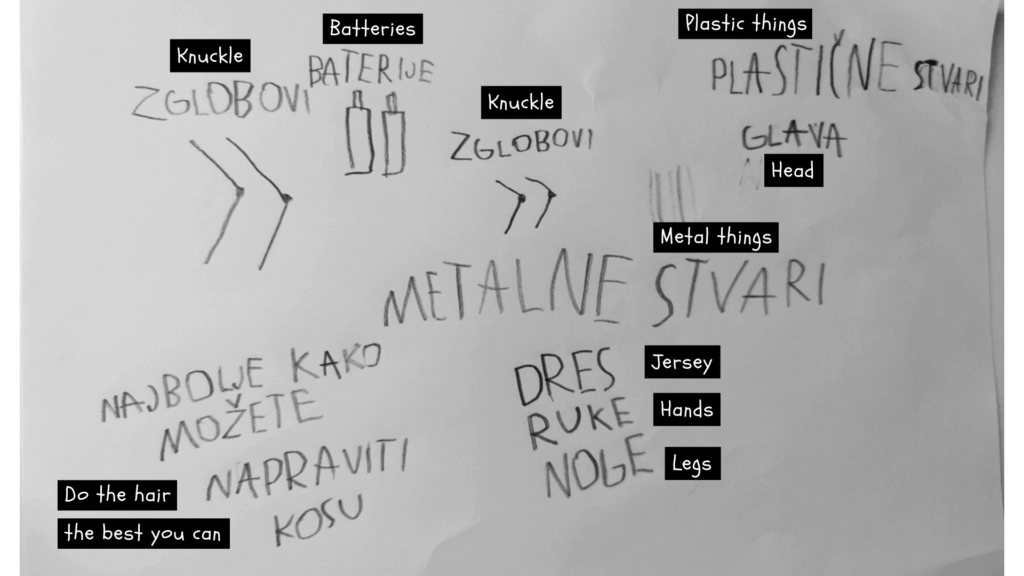
What I got was actually the system specification – basically, all the components the robot is made of. It was his spontaneous and natural response. And in most cases, that’s where the story ends. Clap on the shoulder and task completed. However, we were both in the great mood, although a glass of Argentine Malbec after lunch helped me a little, and we continued with this experiment.
I asked him to rethink for a little and answer these questions:
Who will use the robot? How will they use the robot? How will they feel while using the robot?
These were the results.
Evidently, the robot will be used by kids who love robots and football, as well as by adults who would like to learn to work with robots.
Children will use it in the yard, at home and on the football field. Adults will assemble and disassemble the robots and share them with the kids. Cool!
At this point, the story is getting serious, and my entrepreneurial spirit kicks in (or Malbec). I’m almost running to the company, calling friends from STEMI: “Maaan, let’s build robots! Personalized by favorite football clubs! We can sell them online, in stadiums!” But that’s just my imagination, let’s get back to real life.
The last question is the essence of this story and its core message. How will the users of this ingenious BORUSSIA DORTUMD robot feel?
And the answer was shockingly short and clear: HAPPY.
Children will feel happy, and adults will feel happy. And that’s it. End of the road. The goal is clear, the 6.5-year-old wrote it. I just needed to be by his side.
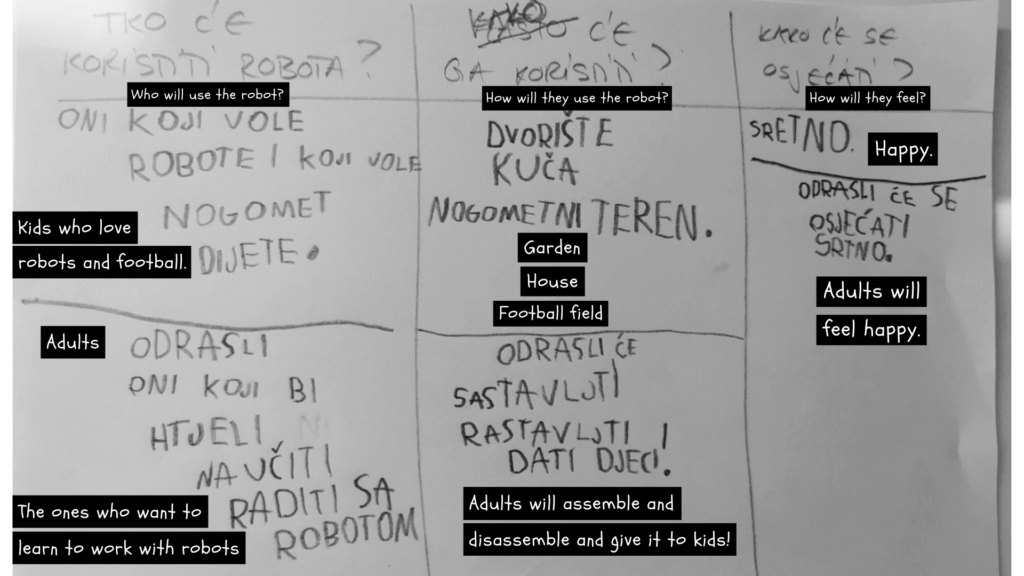
At least two questions come up, what do we, adults, need to be capable of in order to do such “experiments”?
The book “INSPIRED: How to Create Tech Products Customers Love” nicely describes the whole process, the roles and responsibilities of individual product team participants. And it’s worth coming back and reading it again from time to time. The team is, of course, multidisciplinary, and the key competencies of a strong product manager, and therefore, a whole team (cause all for one, one for all) are the following:
- Deep Knowledge of the Customer
- Deep Knowledge of the Data
- Deep Knowledge of Your Business
- Deep Knowledge of Your Market and Industry
I believe that all of us here would very much like our teams to have these superpowers, regardless of whether we work in a product or project-oriented structure/setup.
And the second question, where to start?
Well, probably within ourselves. And our mindset. Getting away from the culture of “proven solutions” and “that’s how we always worked” into “I’m going to try” and “failure is an opportunity to grow”.
As you saw, it’s so natural – even kids dig it.
#productscustomerlove
Photo by Sarah Dietz from Pexels.

